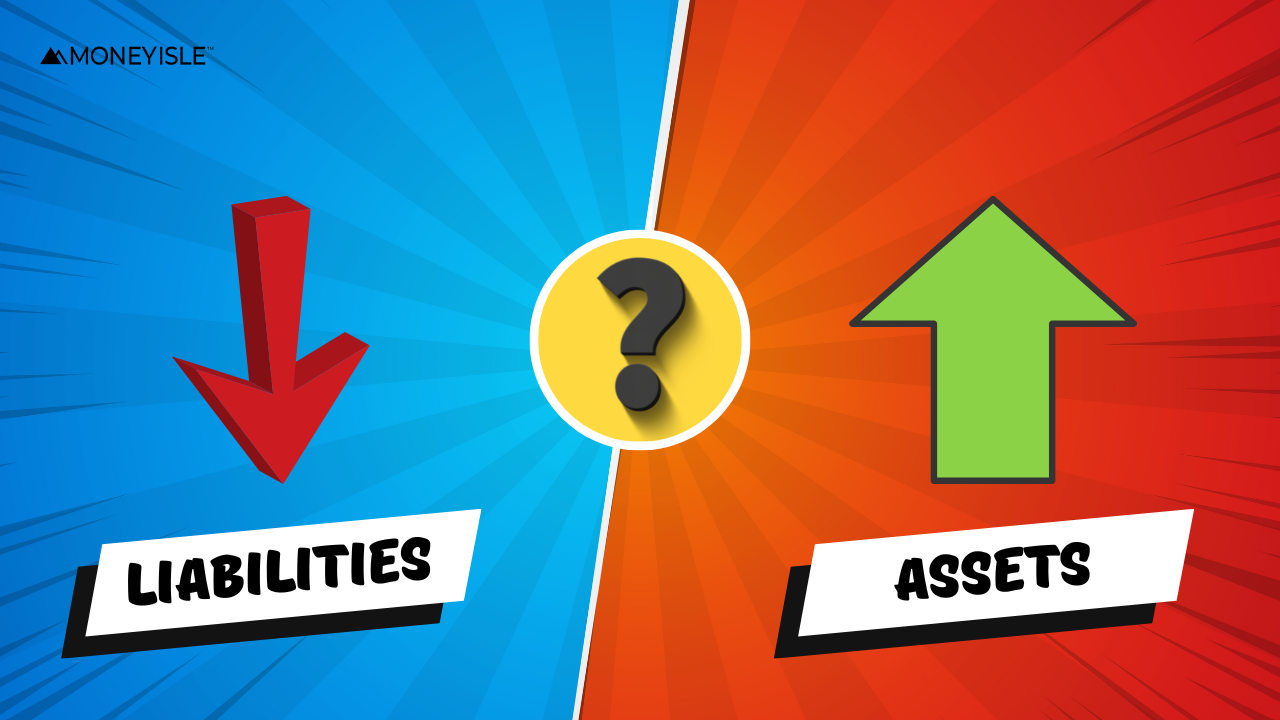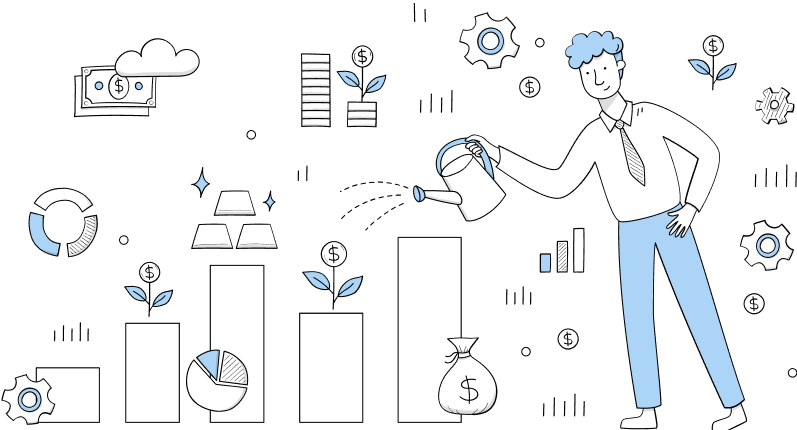A prudent investor in the stock exchange must know the difference between an asset and a liability.
A company has assets. They are the things whose value increases with the passage of time. On the other hand, a company’s liabilities are debts that must be honored and cleared as early as possible.
Depending upon circumstances, a stock can be both an asset and a liability to a company.
The stocks traded in a share market in India and purchased by investors, can be considered assets – as their price appreciates over a period of time. The investor can earn profit by selling these shares on the stock market. This characteristic makes it an asset.
However, in an alternate circumstance, the stocks can also become a liability for a company. Under the circumstance of a company taking loans/debts to buy back its own shares, the liability clause emerges. In such a scenario, the stocks of a company cease to stay as assets. These stocks become a liability.
How Stocks Are Assets?
Stocks are undoubtedly assets for an investor. The share of a company acts just like any other property, which gains value over time.
For example, the price of land will appreciate and may go much above the cost at which the investor bought the same.
Similarly, the share price at which an investor buys a certain number of shares may also change with time. The price of shares and stocks keeps on changing depending on market sentiments and other external factors.
As a person can sell a property like a house to earn a profit when the real estate price appreciates, the share of a company can also be sold when a bullish stock exchange market trend makes its price go up.
3 Principles That Determine Stock As An Asset to a Company
Equity Participation in a Company: When an investor purchases stocks of a particular company, this indicates that the investor owns or holds a certain proportion of the company.
The amount of this stock investment is equal to the proportion of equity or part of the company.
To exemplify, if an X company has floated 100 shares and an investor has purchased 5 shares, the investor owns 5% of the company. The investor has the right to share 5% profit of the company.
Investor Does Not Pay Back Profit Earned from Stocks: A public limited company may have taken loans or institutional finances but the liability of it is not transferred to the investor in stock of that company.
A company borrows from the market to expand or for a new acquisition. As a purchaser of stocks from that company, you are not repaying the loan but you are earning a profit when you sell the shares at a higher value.
Investor Earns Dividends, Not Pays It: An investor is entitled to cash dividends but not liable to pay cash dividends. The dividend is an income for the investor. It is recurring. A stock keeps on generating dividends, thus attaining the character of an Asset.
How Stocks Can Also become Liabilities?
In certain cases, stocks can also be a liability to a company.
To understand this, it is necessary to know that a stock does not show the common indicators of an asset. This can be understood clearly by looking at the traditional signs of an asset.
Characteristics of an Asset
- Ownership.
- Control – control of market pricing.
- Asset collected over past business transactions.
- The total size of assets can be measured in money terms.
- Assets expected to generate future benefits in money terms.
Stock does not show the above parameters which are used to define an asset in the classical sense of the term.
Likewise, a stock from accountancy purview cannot be termed as an asset due to the following reasons:
- A stock is not owned by the issuing company.
- A stock is being held by shareholders, thus not a company property in that sense.
- The controlling power to regulate the price of the share trading in the stock exchange does not lie with the company. It depends on the company’s financial performance and other factors prevailing in the market.
A public limited company, unlike a proprietorship, is controlled by the shareholders. For a company issuing the shares, the term asset cannot be fully used in the case of stocks or shares floated by it in the market. At the same time, stocks can’t be termed as a liability.
However, for an individual investor who has purchased the stock, it can be termed an asset. As its value is likely to go up in the future.
Can Stocks Be Both a Liability And Asset To a Firm?
In order to decide whether a particular stock of a company can be considered a liability or asset, the principles of ownership have to be analyzed.
Company: From a company’s point of view, its stocks are not assets. Stocks represent equity. However, preferred stock can be considered a form of liability.
When a company launches preferred stock, it has to pay shareholders specific dividends on time even before its nominal shareholders get their share of the dividend. Likewise, in the event of a winding up of the company, a preferred stockholder has more claims on the assets of the company. Thus, a company is legally bound to pay the sale proceeds of its assets and properties to preferred shareholders as per the company laws.
Investor: From an investor’s point of view, holding any type of stock will be considered an asset. Shareholders can buy or sell the shares anytime they want to as per SEBI rules and guidelines.
Conclusion
Stocks traded in the stock exchanges are considered (liquid) assets for investors as they can trade in them at any given time. Most of the Assets enable their owner to earn regular income by using them as a rental.
A stock cannot be used as a means of rental income like one can get from a house or a piece of land (that can be leased out for annual rental). But it can help earn regular income in another form: through day trading, short-term holding, or long-term holding.
In a nutshell, stocks are certainly an asset to both the investors and the company. But in rare cases, such as during times of liquidation, preferred stocks become the liability of the company.











